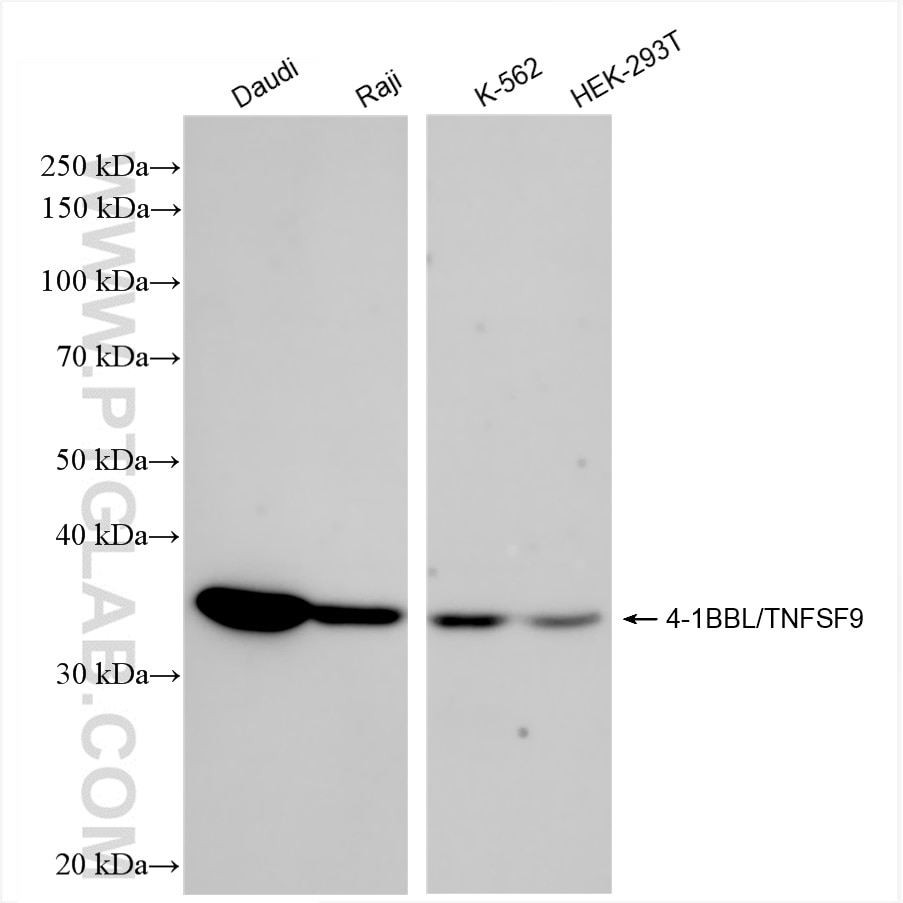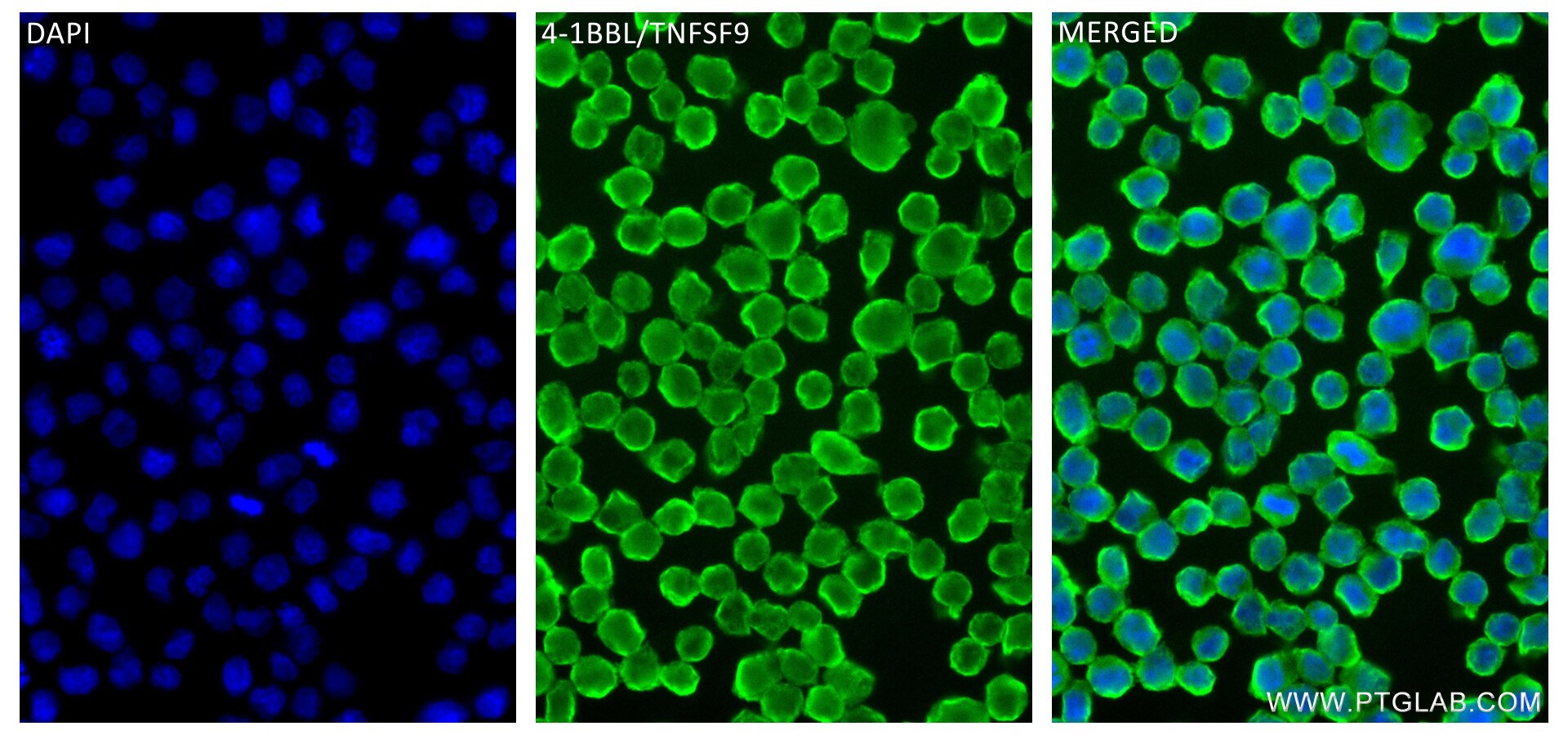Validation Data Gallery
Tested Applications
| Positive WB detected in | Daudi cells, Raji cells, K-562 cells, HEK-293T cells |
| Positive IF/ICC detected in | Raji cells |
Recommended dilution
| Application | Dilution |
|---|---|
| Western Blot (WB) | WB : 1:5000-1:50000 |
| Immunofluorescence (IF)/ICC | IF/ICC : 1:200-1:800 |
| It is recommended that this reagent should be titrated in each testing system to obtain optimal results. | |
| Sample-dependent, Check data in validation data gallery. | |
Product Information
84185-5-RR targets 4-1BBL/TNFSF9 in WB, IF/ICC, ELISA applications and shows reactivity with human samples.
| Tested Reactivity | human |
| Host / Isotype | Rabbit / IgG |
| Class | Recombinant |
| Type | Antibody |
| Immunogen | Fusion Protein 相同性解析による交差性が予測される生物種 |
| Full Name | tumor necrosis factor (ligand) superfamily, member 9 |
| Calculated molecular weight | 254 aa, 27 kDa |
| Observed molecular weight | 35 kDa |
| GenBank accession number | BC104805 |
| Gene Symbol | TNFSF9 |
| Gene ID (NCBI) | 8744 |
| RRID | AB_3671740 |
| Conjugate | Unconjugated |
| Form | Liquid |
| Purification Method | Protein A purfication |
| UNIPROT ID | P41273 |
| Storage Buffer | PBS with 0.02% sodium azide and 50% glycerol , pH 7.3 |
| Storage Conditions | Store at -20°C. Stable for one year after shipment. Aliquoting is unnecessary for -20oC storage. |
Background Information
TNFSF9, also named as 4-1BBL, belongs to the tumor necrosis factor family. It is a cytokine that binds to TNFRSF9. TNSF9 induces the proliferation of activated peripheral blood T-cells. It may have a role in activation-induced cell death (AICD) and may play a role in cognate interactions between T-cells and B-cells/macrophages.
Protocols
| Product Specific Protocols | |
|---|---|
| WB protocol for 4-1BBL/TNFSF9 antibody 84185-5-RR | Download protocol |
| IF protocol for 4-1BBL/TNFSF9 antibody 84185-5-RR | Download protocol |
| Standard Protocols | |
|---|---|
| Click here to view our Standard Protocols |

